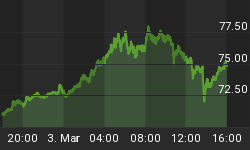With its numerous skyscrapers, luxury villas and high-end luxury goods businesses, Dubai has captured the world's imagination for decades. The emirates' rapid economic development has also given rise to a booming real estate sector that's easily one of the most lucrative in the region, and indeed the world.
But it's now beginning to emerge that the rapid growth of Dubai's real estate sector is not only thanks to the country's high concentration of oil millionaires and billionaires, but is also being driven by something far more sinister--cartels.
Cartels Fueling Construction Boom
Specifically, drug traffickers, terror financiers and war profiteers have been using Dubai as a money laundering hub for their ill-gotten wealth.
A report by Washington-based Centre for Advanced Defence Studies has offered evidence to support long-held rumors that these cartels are behind a curious trend where foreign ownership has been fueling a construction boom so huge that it has even outstripped local demand.
The center, also known by the acronym C4ADS, has identified $100 million in suspicious purchases of villas and apartments across the city. This includes million-dollar villas that line the fronds of the famous Palm Jumeirah, a man-made archipelago, as well as apartments housed in the world’s tallest building, the Burj Khalifa. Others are more modest one-bedroom apartments located in the more affordable suburbs of Dubai.
The report has named several high-profile individuals, some of whom have already been sanctioned by the U.S. as being behind these cartels.
One such individual is Rami Makhlouf, cousin of embattled Syrian President Bashar Assad. One of the country's wealthiest men and owner of its largest mobile carrier, Syriatel, Makhlouf has been sanctioned by the U.S. for use of intimidation and close ties to Assad to obtain improper financial advantage over ordinary Syrians. The report says that Makhlouf and his brother own real estate and property on the Palm Jumeirah. Related: Why Gold Isn’t Working As Stock Hedge
The C4ADS report has also identified one property directly linked to wealthy Lebanese businessmen Kamel and Issam Amhaz, both sanctioned by the U.S. for covertly helping Hezbollah purchase sophisticated electronics for use in military drones. The report also says that two other shareholders in Amhaz’s sanctioned firms own property worth nearly $70 million in Dubai.
Permissive Environment
The revelations hardly come as a surprise to people who have been following the politics of the emirates.
Dubai is a prime Arabian Peninsula entrepot that has become a favorite port of call for criminals, especially wealthy individuals skirting the law. Smuggled guns, drugs, gold and tons of illicit cargo all move through the city-state.
The lax and permissive environment including Dubai's economic free zones as well as lucrative gold and diamonds trade are largely to blame.
In 2002, the emirates arrived at the decision to allow foreign ownership of freehold properties. That move attracted a huge influx of developers, including President Trump, from around the world.
In an interconnected global economy with low barriers for free movement of funds, regulatory loopholes can easily serve as conduits for a wide range of illicit actors. Dubai presents a prime opportunity for those with illegal money they are unable to spend elsewhere.
In its annual International Narcotics Control Strategy Report this year, the U.S. State Department issued a warning about potential money laundering in the UAE, urging the country to devote more resources to curbing the threat.
By Alex Kimani for Safehaven.com
More Top Reads From Safehaven.com:

















